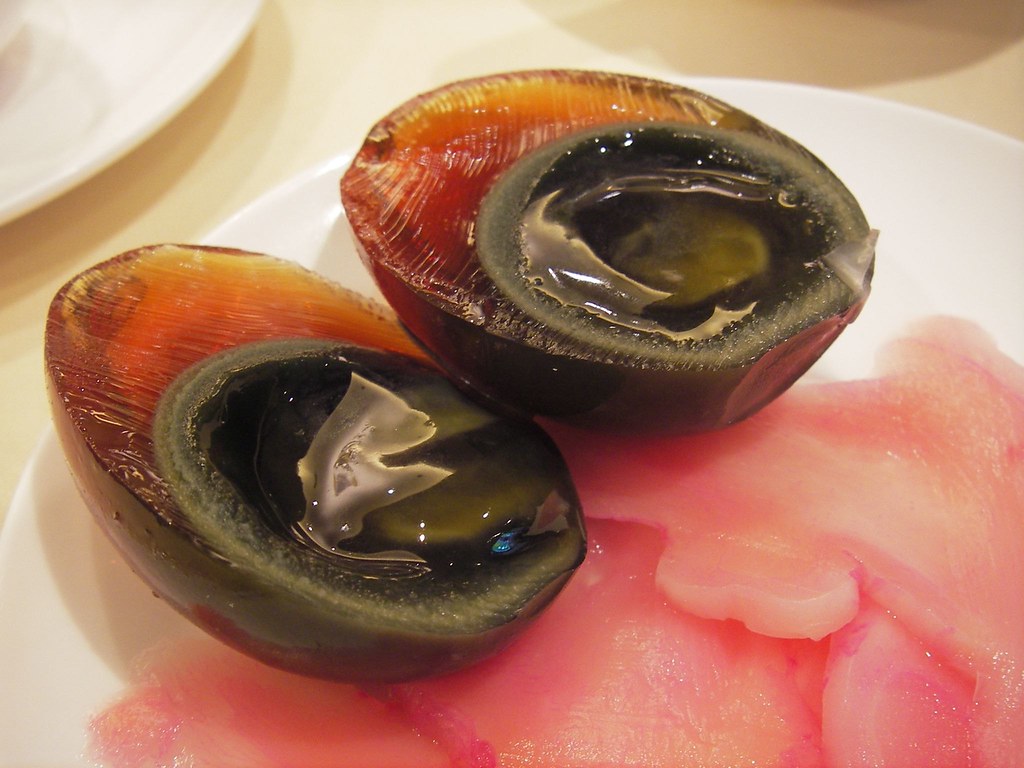A century egg doesn’t exactly look appetizing, but if your bucket list is full of eating all kinds of weird and exotic foods, this will probably find a place on your list.
So, what is a century egg? Well, it goes by a few different names; hundred-year egg, thousand-year egg, millennium egg, and pidan. Fortunately, century eggs aren’t as old as the name suggests.
These eggs are actually made by covering chicken or duck eggs in an alkaline solution of clay, wood ash, rice husk, quicklime, and salt for a period time between a few weeks to a few months. This curing process turns the yolk green and the whites into a translucent brown. It also gives the eggs a, er… distinctive smell and favor. Most say the smell is like a mixture of sulfur and ammonia – nice!
To eat one, you need to peel away the green-grey shell and take a look at the brown egg inside, which is often beautifully patterned like a marble. If you get past the smell, the egg often tastes just fine, it has a creamy texture and a deep flavor.

Once you’ve tried a bite you can tick this off your bucket list! Finish it if you like it, but we think a bite justifies a big tick through this item on your list.
Century eggs have over five centuries of history, though the exact time they started being eaten is unclear, historians believe it to be about 600 years ago in Hunan during the Ming Dynasty. It is believed they were discovered when a homeowner found duck eggs in a shallow pool of slaked lime that was used as mortar during the construction of his home two months earlier. He liked the taste so much he decided to make more to share with others – though why he decided to eat the eggs in the first place, we’ll never know!
Looking for more unique bucket list ideas and strange eating experiences? You’ll find more on the Buckil site where you can start putting your bucket list together with our bucket list maker, or jump on your phone to download the Buckil app, available on iOS and Android, so you can take your bucket list with you on the go.




























